As E-Verse readers will know from earlier posts (here and here), my poem “Nights of 1998,” from my book All of You on the Good Earth, was set to music by composer Christopher LaRosa. After a successful premiere in the US, the piece was performed again by the ensemble at UNAM (Universidad Nacional Autónoma de México) on May 29th.
Although I was unable to attend, the composer writes to tell me the good news that “the hall was standing room only, and people really enjoyed the concert. Your poem was translated into Spanish too. I thought you’d get a kick out of that.” Here are some photos from the performance along with a live recording from that evening. I also include the Spanish translation of the poem from the program.
You can see the striking photographs by José Pita Juárez below. You can visit his website here.
Noches de 1998
Poema de Ernest Hilbert
Todo hierve: mi caverna con techo de hojalata
El centro. Lucho para tocar mi disco
Chillidos como tiza que rechina a través de los parlantes.
Lo subo, más y más y más. Estoy encendido como la guerra
Con píldoras, líneas, tantos tragos que no puedo sentir.
Encuentro a dos mujeres disparándose heroína
En mi cama. Estoy subiendo tan rápido que guacereo.
Oh Cristo, ¡el verano está pasmado de lilas!
A alguien le patean la nariz, y de ahí
Más ilegan, y más, y mira
Todo esto, y Dios, el ruido, no podemos regresar—
No deshacemos como estrellas antiguas, chispas—
Oro como polen vuela por la oscuridad.
Here is Christopher LaRosa’s commentary on the piece.
“Nights of 1998” sets Ernest Hilbert’s poem of the same title, from his collection All of You on the Good Earth. The poem depicts a debaucherous downtown party in SoHo, Manhattan, replete with copious alcohol, drugs, and music. The scorching summer night spins out of control to a sudden breaking point—the partygoers fall apart, and during the early morning hours of his comedown, the first-person protagonist experiences a (perhaps slightly hallucinatory) existential afterglow. The boundless energy, apparent authenticity, and evocative dramatic arc of Ernest’s poem drew me in.
The poem describes a diegetic music, as the baritone struggles to “play a record…and the needle shrieks like scraped chalk through the speakers,” which cleverly intersects with the non-diegetic music suggested by his racing mental state, as well as the implied sonic backdrop of the wild partygoers and the hectic downtown streets of New York City. The poem’s sonic environment and the baritone’s varying mental states seem perfectly suited for sinfonietta, which I view at once as a motley crew of instrumental characters, as well as an ensemble capable of intense energy and agility, deafening cacophony, and gorgeous color. As such, I use the ensemble in various dramatic guises to describe the party’s wild sonic setting, the diegetic music, and the baritone’s extreme mental states.
I cast the various instruments of the sinfonietta as individual characters participating in the revelry, chattering away. As more and more instruments enter, or arrive, the texture occasionally boils over, submerging the baritone soloist in cacophony of ever-increasing intensity. The baritone’s scraping record sounds in the overpressure bowed strings, the New York traffic blares through the glissing brass, the diagetic music’s energy pulses through the chaotic up and down of the drum set’s hi-hat. Throughout the piece, the sinfonietta assumes the baritone’s drug-altered mental state—the music races ahead as the baritone’s dopamine levels surge, ecstatic bursts flash across the tutti ensemble, stuttering metric irregularity and tempo modulations distort the perceived flow of time, and suspended passages seem to stop time completely while the baritone makes simple but genuinely profound observations of the summer night’s beauty. The poem begins at a boiling point; nevertheless, the baritone continues to turn up his record player, party, and mental state. So the music begins up, and I only continue to turn the ensemble up, and up, and up—until we can’t go back.

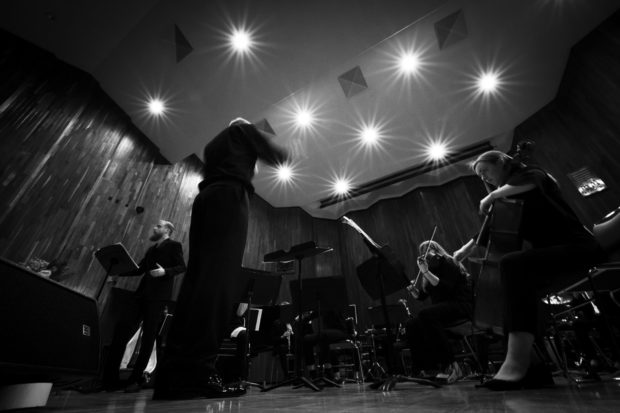
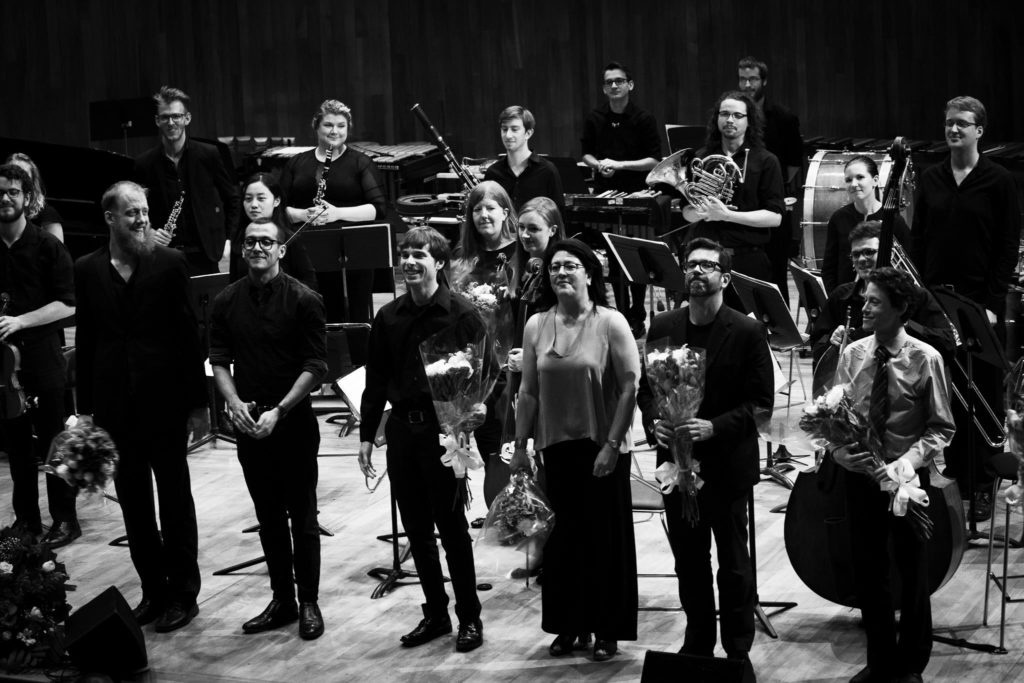
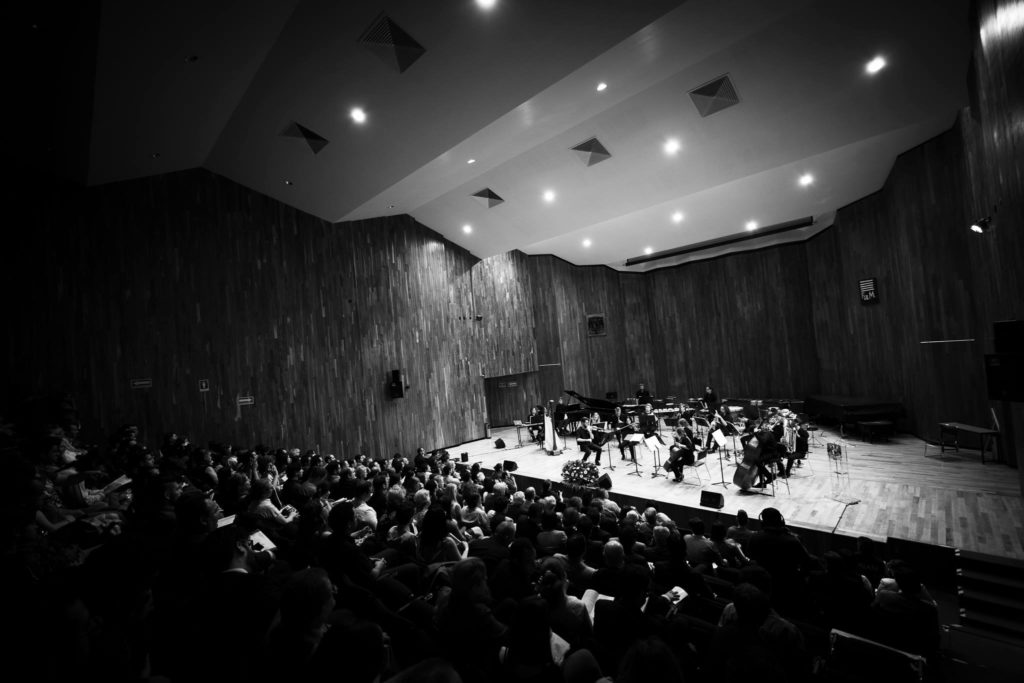
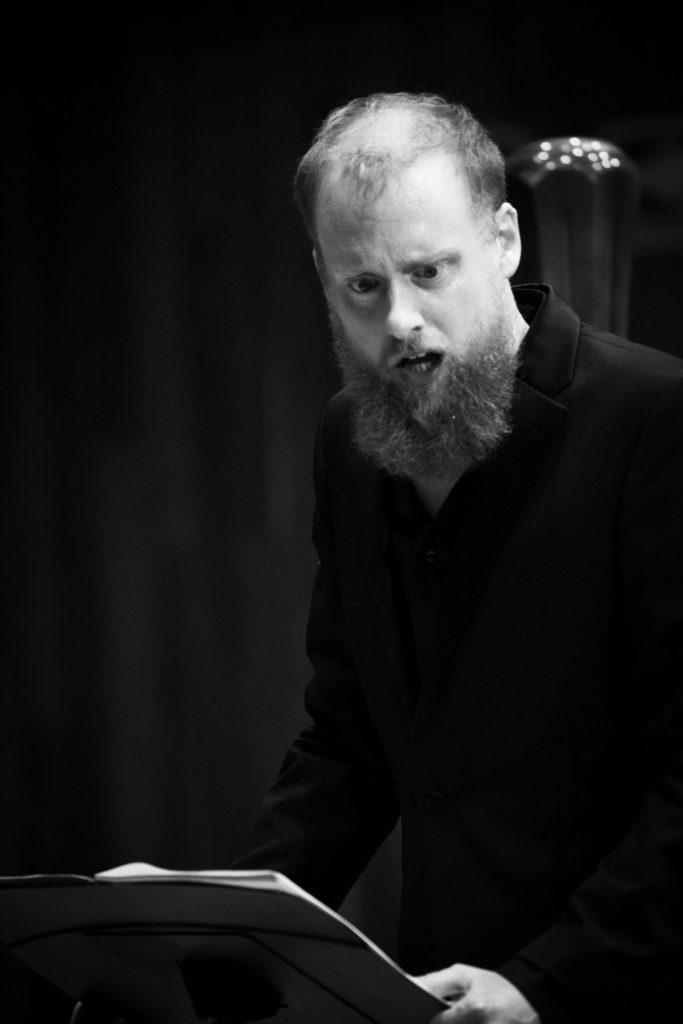
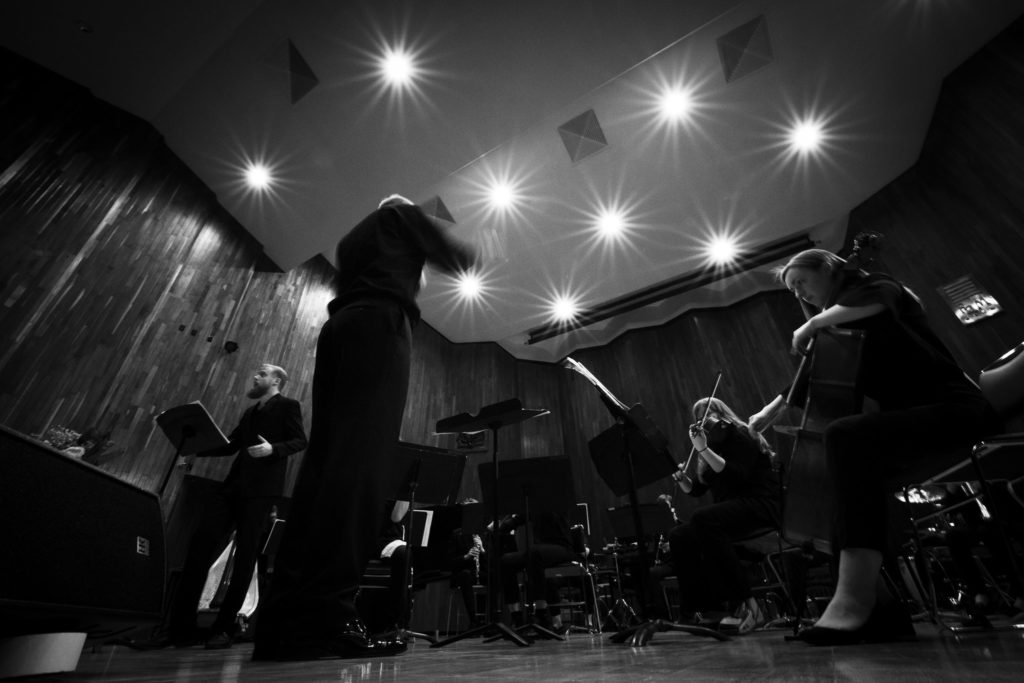
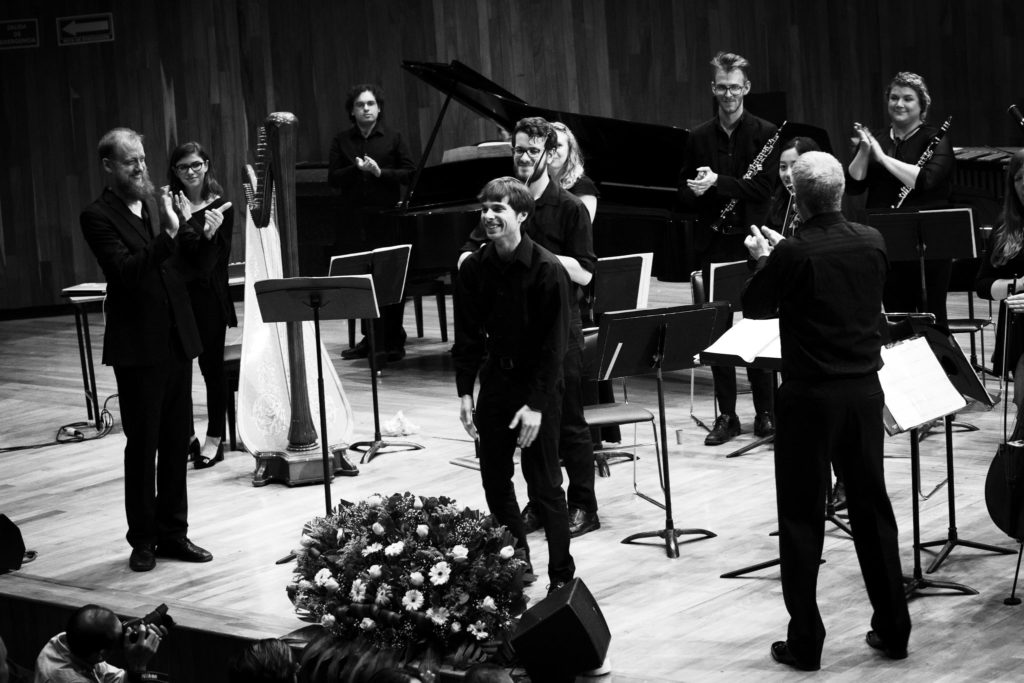
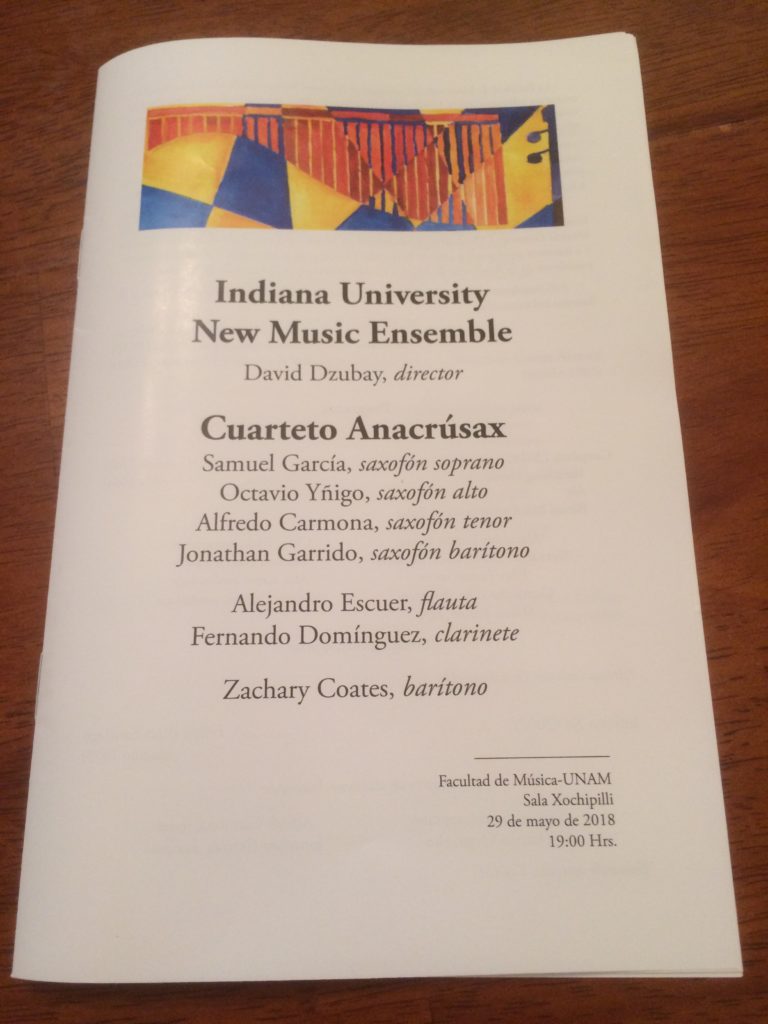
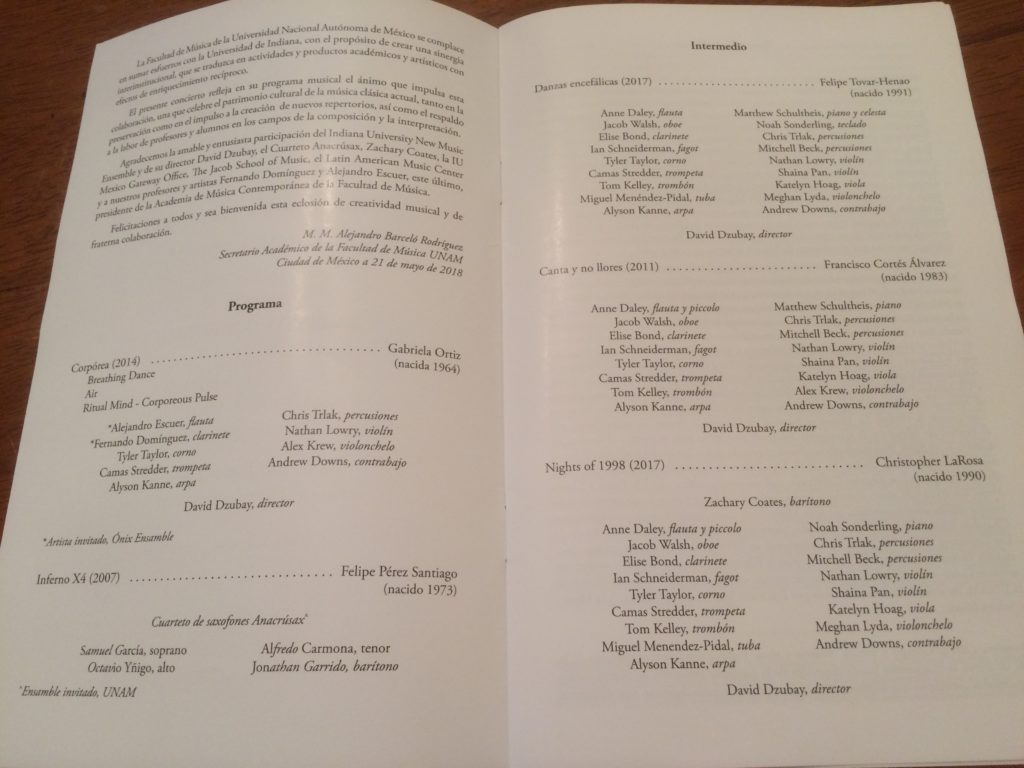
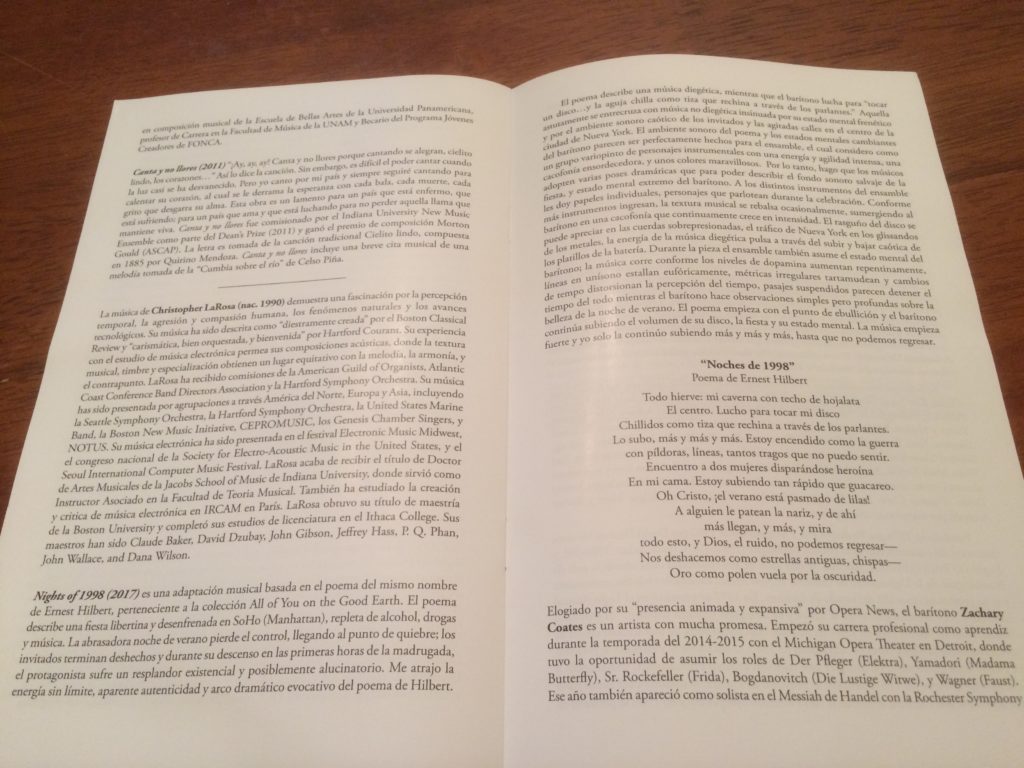
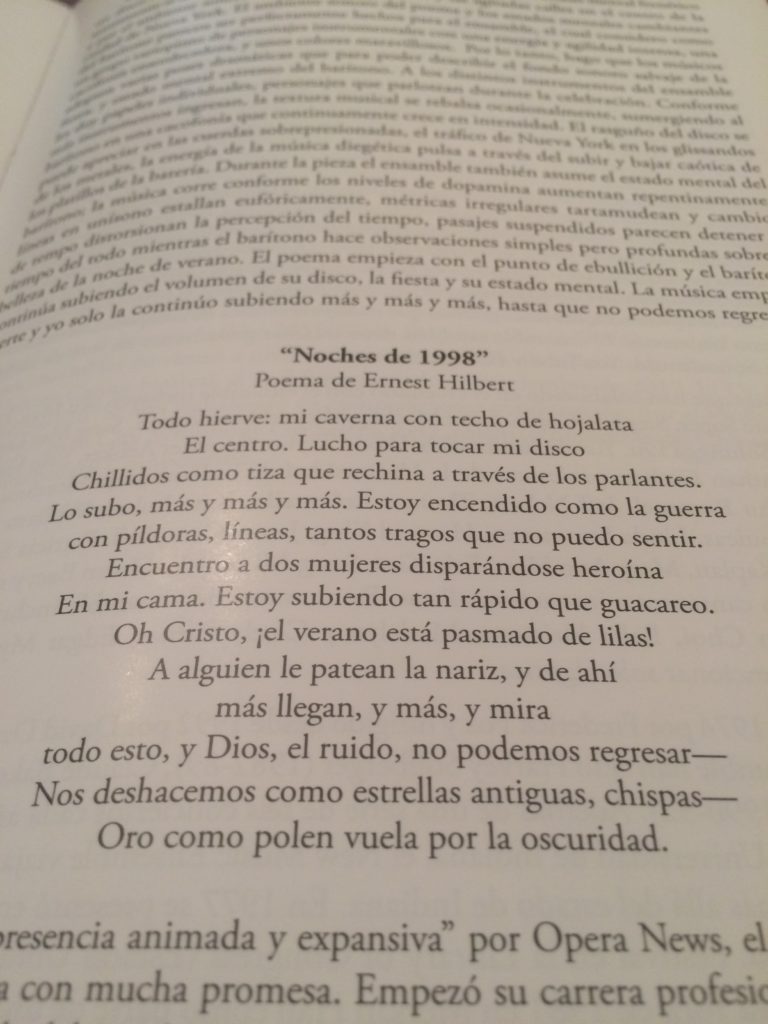

No Comments